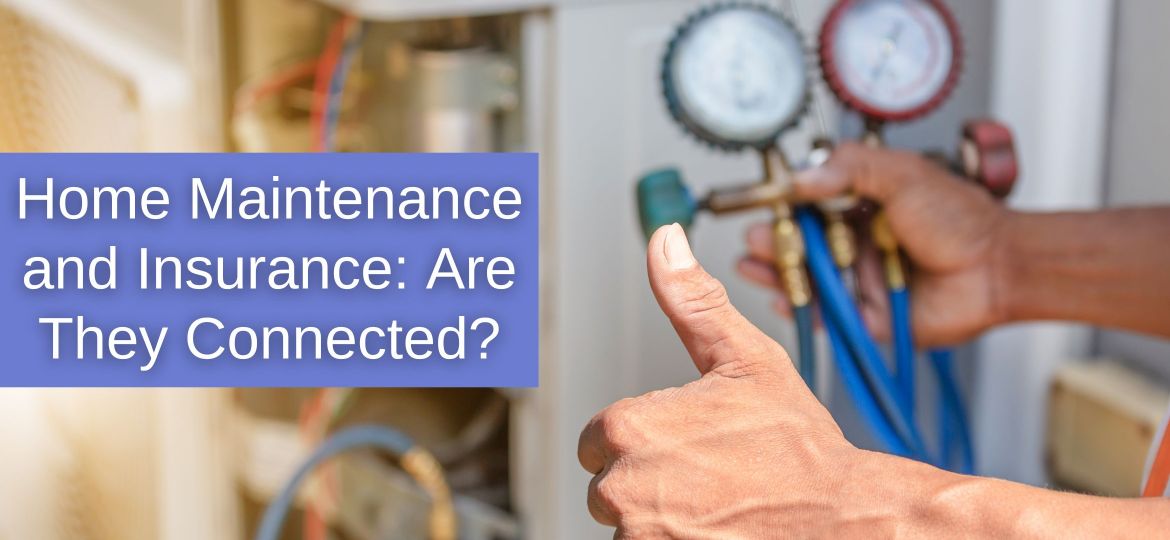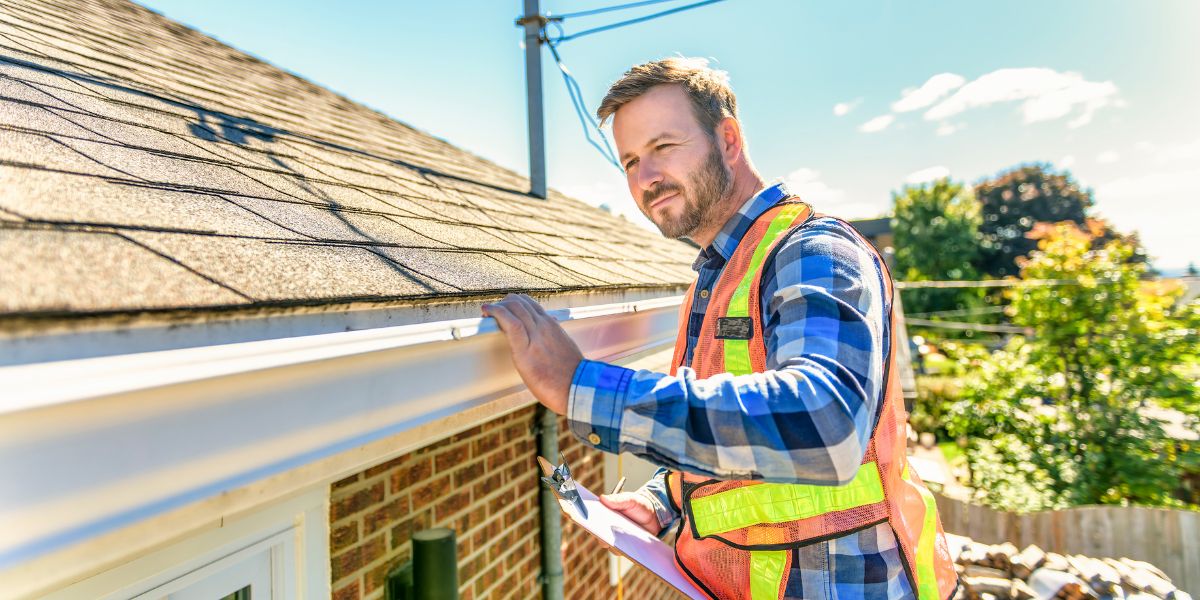
Homeowners insurance typically doesn’t cover preventative maintenance. Instead, it addresses repairs caused by sudden, accidental damage resulting from covered perils. However, neglecting routine maintenance can lead to denied claims if damages are deemed preventable. Keeping up with home maintenance not only preserves the value of your property but can also impact the effectiveness of your insurance coverage.
This article examines the relationship between home maintenance and insurance, highlights potential discounts insurers offer for proper upkeep, and provides insights into essential DIY tasks and professional services that homeowners should prioritize.
The Connection Between Maintenance and Insurance
At its core, the relationship between home maintenance and insurance revolves around risk management. Insurance providers favor homeowners who demonstrate responsibility and proactively maintain their homes because this reduces the likelihood of costly claims.
Routine upkeep, such as repairing leaks, clearing gutters, and servicing HVAC systems, signals to insurers that you are invested in preventing damage before it happens. This perception of responsibility makes you a lower-risk policyholder, which is advantageous for insurance companies because it reduces their financial exposure.
Being a low-risk homeowner not only makes you less likely to file claims for preventable issues but also helps you avoid more significant problems. For instance, addressing minor plumbing issues or maintaining your roof can avert extensive water damage or structural issues due to roof leaks, which are expensive to repair and insure. Demonstrating this level of care can lead to benefits such as reduced premiums, discounts, or quicker claims processing.
Furthermore, adopting a safety-conscious approach minimizes the chances of emergencies like fires, water damage, or theft. These precautions enhance the security and safety of your property, making it less expensive to insure. Insurers value these measures as they reflect your commitment to protecting both your home and their financial stake, reinforcing your status as a favorable customer.
How Home Maintenance Influences Insurance Premiums
Insurance providers often reward homeowners who take a proactive approach to maintaining their property. Discounts and benefits are commonly tied to measures that lower the risk of claims. Below are examples of maintenance-related improvements and their potential impact on insurance costs:
Home Security System Discount
Adding burglar alarms, motion detectors, or surveillance cameras reduces the likelihood of break-ins or vandalism. Professionally monitored systems often qualify for significant discounts.
Potential Savings: Up to 20%
Smoke & Carbon Monoxide Detectors
Equipping your home with functional smoke and carbon monoxide detectors decreases the risk of fire or smoke-related claims, leading to premium reductions.
Potential Savings: 5–10%
Claims-Free Discount
Homeowners who go several years without filing insurance claims are often rewarded with reduced premiums.
Potential Savings: Varies, often 5–20%
Recently Renovated Home Discount
Homes with updated systems, such as new plumbing, electrical work, or roofs, pose fewer risks and often qualify for lower premiums.
Potential Savings: Up to 20%
Stormproofing & Weatherproofing Discounts
Installing features like hurricane shutters, impact-resistant roofing, or reinforced windows can earn discounts in regions prone to severe weather events.
Potential Savings: 10–15%
Energy-Efficiency or Green Home Discounts
Upgrades such as solar panels, better insulation, or energy-efficient HVAC systems can reduce premiums for eco-conscious homeowners.
Potential Savings: Typically 5–10%
Fire-Resistant Materials Discount
Homes built or renovated with fire-resistant materials, such as brick, cement, or metal roofing, can qualify for lower rates, particularly in wildfire-prone areas.
Potential Savings: 5–15%
By taking these proactive steps, homeowners can not only reduce their premiums but also enhance the safety, efficiency, and longevity of their homes.
A proactive approach to home maintenance not only safeguards your property but also solidifies your relationship with your insurance provider. Below are specific tasks—both DIY and professional—that insurers often recommend. These actions can prevent costly damage, demonstrate your responsibility as a homeowner, and potentially lead to lower insurance premiums.
10 DIY Maintenance Tasks Recommended by Insurance Providers
Monthly Tasks
- Test Smoke and Carbon Monoxide Detectors
Ensure these devices are functional and replace batteries as needed to maintain safety. - Inspect Faucets, Toilets, and Pipes for Leaks
Catching small leaks early prevents water damage and potential mold growth.
Seasonal Tasks
- Clean Gutters and Downspouts
Clearing debris prevents water overflow that could compromise your foundation. - Check Windows and Doors for Drafts
Resealing gaps not only improves energy efficiency but also keeps your home more comfortable. - Inspect the Roof from the Ground
Look for missing shingles, cracks, or other visible signs of damage, especially during spring and fall. - Trim Overhanging Tree Branches
Reducing tree overgrowth minimizes the risk of storm-related damage.
Annual Tasks
- Drain and Clean the Water Heater
Removing sediment buildup increases efficiency and prevents potential leaks. - Pressure Wash Exterior Surfaces
Cleaning siding, decks, and other surfaces preserves their structural integrity and appearance. - Test Outdoor Sprinklers and Shut-Off Valves
Verify proper functioning and address any leaks or malfunctions. - Review and Update Your Home Inventory
Document any changes in your possessions to ensure accurate insurance coverage.

10 Professional Maintenance Services Recommended by Insurance Providers
Seasonal Services
- HVAC System Inspection and Maintenance
Schedule service in spring and fall to clean filters, check efficiency, and inspect ductwork. - Pest Control Services
Prevent infestations by addressing issues during spring and summer.
Annual Services
- Roof Inspection and Minor Repairs
Have a professional check for leaks, loose shingles, and other damage to avoid costly repairs. - Chimney Cleaning
Remove creosote buildup in the fall to reduce fire hazards. - Plumbing Inspection
A professional can identify leaks, corrosion, or hidden issues that could lead to water damage. - Electrical System Inspection
Ensure outdated wiring or overloaded circuits are addressed to prevent electrical fires. - Foundation Inspection
Identifying cracks or shifts early can save you from long-term structural problems. - Gutter Cleaning and Repair
Professionals can handle hard-to-reach areas and ensure proper drainage.
Every Few Years
- Septic Tank Pumping
Schedule this service every 2–3 years to prevent sewage backups and maintain system health. - Home Security Installation and Monitoring
Keep your property safe by maintaining alarms, cameras, and smart locks.
Take Charge of Your Home’s Maintenance and Insurance
By following these maintenance recommendations, you can protect your home, reduce the likelihood of insurance claims, and possibly lower your premiums. Regular upkeep signals to insurance providers that you’re a responsible homeowner, which can lead to financial benefits and peace of mind.
At Fassbender Insurance, we’re committed to helping you secure the best coverage at competitive rates. Contact us today to compare policies, explore cost-saving options, and ensure your home is properly protected.


